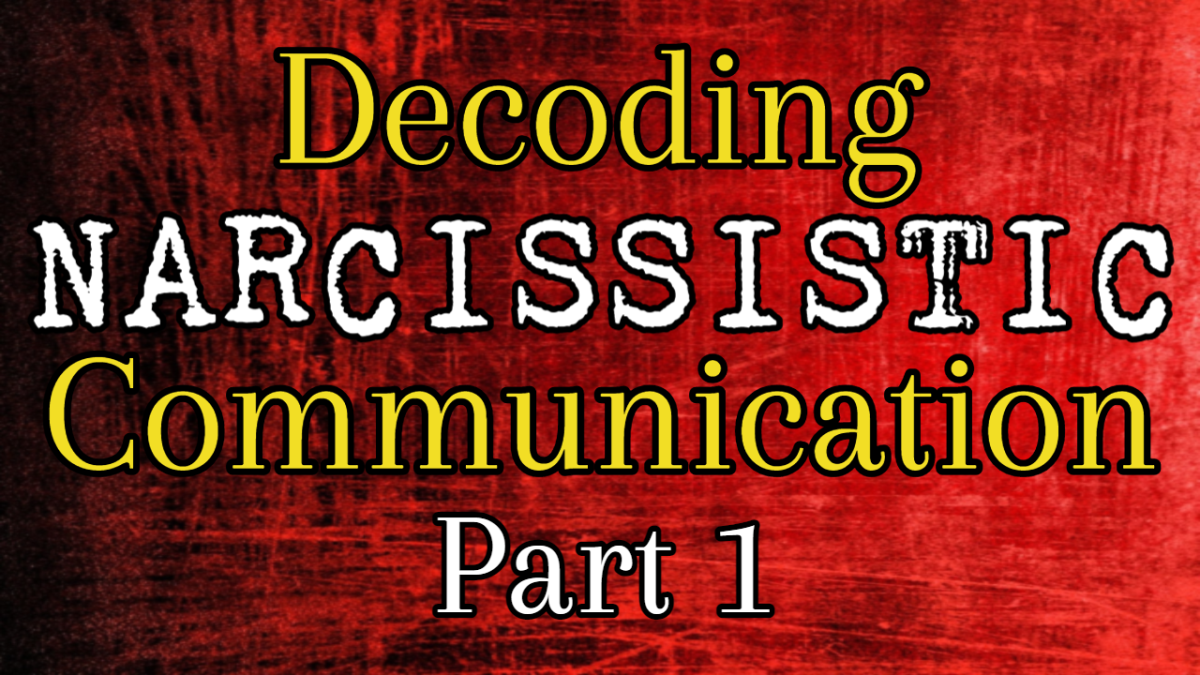The Nature of the Universe, 6,Worldviews
Various Worldviews

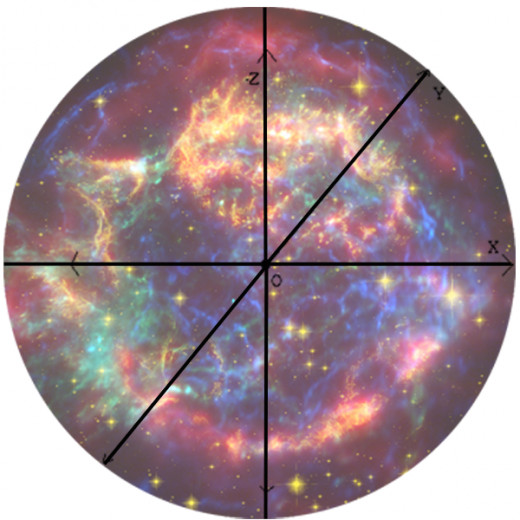
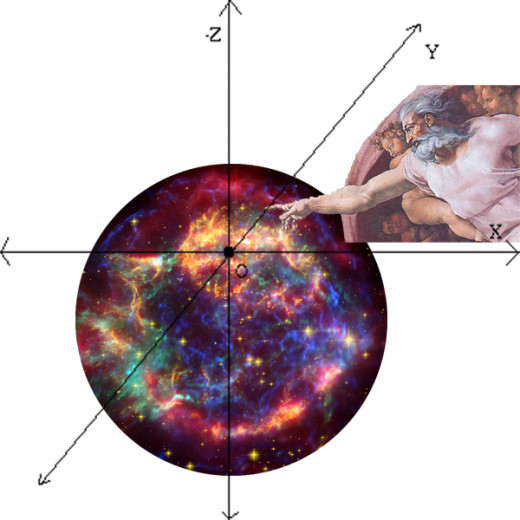
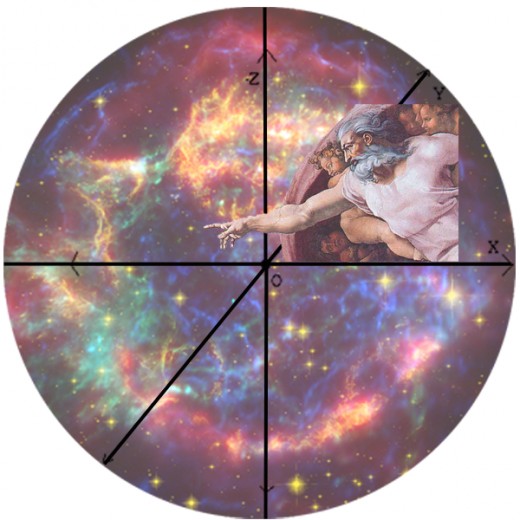
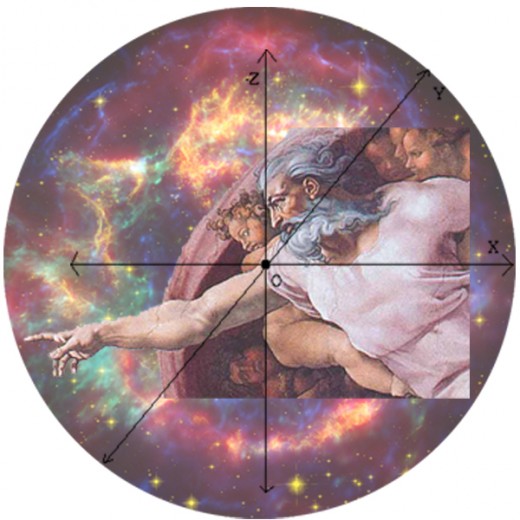
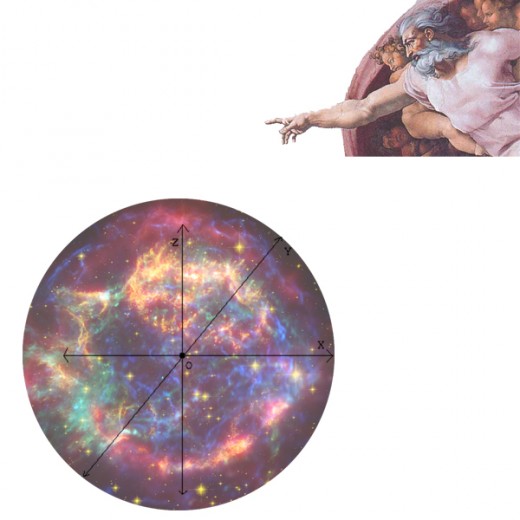
Worldviews
A worldview, also called the fundamental cognitive orientation, or, fundamental existential postulate, or normative postulates, from which a person works is a hermeneutical metaphysical belief system that all people have, and filter information through, in order to make sense of things they see but to conform those things, or “justify” those things to the worldview.
These cognitive orientations form the basis for internally determining with some rapidity what fits into your way of thinking (your cognitive orientation) and what does not. It speeds the process of wading through the millions of images and thousands of data bits that stream into our brains each day though our sentience.
One cannot go about constantly doubting that anything can be known or think that nothing fits into any kind of thinking pattern. If so you could not know anything at all, it would take hours to answer the simplest of questions such as, “would you like some tea?”
But we do know things, or you would not be reading this or understanding it.
This was the error of the skeptic who continually doubted his skepticism, or the Modernist who thought you could not know anything. both failed because of the fact they denied having a world view. The modern scientist, being a philosophic naturalist or believer in scientism uses these preconceived ideas to filter information that comes to them, they require you give up your preconceived notions to look at the data objectively, but they do not do the same. They claim to have no preconceived notions, but they very much do have a distinct world view which biases the results of their thinking.
Here is how you can tell. Ask them if they believe in an objective personal creator. No, they exclude that through their world view, or, if they do, they will reject the idea that he has anything to do with creation, or perhaps, he is only the organizer of the Big Bang, and so, they hold a type of deism which is convenient because it explains what naturalism cannot, where energy and matter originated.
Let’s explain in a simple manner. You either believe in spanking children to correct behavior or you do not. Some of you that do not believe this is good just interpreted what I said as “either you believe in beating children or you do not.”
Those people have filtered the information through the normative postulate which then reinterpreted the data into a statement that was not used. The term was equivocated to fit into their worldview.
On the other side there were people who immediately thought, “of course you spank children to help them understand what to do and what not to do.” In this case, the filter did not need to change anything to understand the statement.
The point is that each side of that issue filters the sentence the way they understand children and childhood to be. One changes the meaning and the other did not.
So, let’s turn the situational awareness around and state “Do you believe in beating children when they do something you don’t like?” Here people who do not believe in corporal punishment do not filter the information and the people who do immediately understand the bias of the statement, and filter it to understand “beating” as an equivocation of “spanking” by a person with a bias, and “do something you don’t like” is a relativistic way to avoid the right/wrong statements of morality.
And, now, since I have framed this in part by my worldview, you can understand what part of it is without any further comment.
The same thing happens in all scientific discussion of data and there is a specific bias toward one viewpoint and away from another and no, it is not open for discussion. This lack of discussion caused Einstein’s errors, and causes the still developing string theory errors, and has quite literally stifled the development of science by creating theories and operational postulates that stopped our understanding of what is.
Science ought to be about finding the best explanation for observed phenomena and human experiences not about a bias against one or more worldviews and stopping the debate.
The Anthropic Principal
In physical cosmology, the Copernican principle, named for but not developed by Nicolaus Copernicus, claims that the Earth is not in a central, specially favored position.
This was an interesting thought since it was the Catholic Church where the earth was the center of the universe idea developed after allowing cosmology to be dominated by the Greco-Roman Ptolemy, who didn’t think we were special, rather, disfavored, the dregs of the universe, that is, not the center of the universe but the bottom of the universe.
The Copernican principal is generalized to the Einsteinian relativistic concept that humans are not privileged observers of the universe.
The anthropic principal was developed in response to this idea. It is the philosophical argument that observations of the physical Universe must be compatible with the conscious and human life that observes if the universe is to relate any useful information at all through our senses.
But why should random chemical interactions, unguided by any teleological (purposeful) goal or intelligent designer produce such results?
I expect a pair of dice rolled on a table to produce certain probable sequences. The more dice I roll the larger the probability universe is and the lower the probability I will roll any specified pattern on the face of the dice.
Why then, with trillions of independent variables would I expect to produce a chemical reaction that can understand anything at all? Why is there consciousness? Why would we expect that conscious life to relate correctly to the universe it is in, that is, produce senses that give accurate information?
You might want to read that again.
Why does the Universe have the fundamental physical components and constants necessary to accommodate conscious life? That is, how did, how could random chemical reactions of a Bing Bang result not only in the proper conditions for life, not only in life itself but also result in senses and a mind that can interpret the sense data bring in the data to correctly relate to the universe itself.
This is much more complicated than anything intelligence has ever produced.
This is not unlike expecting that if I blow up my aquarium with a pound of C-4 plastic explosive I will expect all the animals and plants to die, but if I make the explosion really large, magnitudes of order larger, say a hydrogen bomb, the explosion will result in humans that can understand the explosion itself.
This analogy is only wrong by magnitudes of order, so, let’s make it magnitudes larger: (You need to understand very large catastrophes and the energy released. The Hydrogen bomb doesn’t have even the power of a large volcano to say nothing of the trillions of times larger earth which is only a small planet in a very vast universe.)
We assume if the sun suddenly supernovas then all life on earth will end rather abruptly, as would our solar system so engulfed, however, it is held that is was a big bang, many orders of magnitude larger, that started life?
This is insanity.
There has to be some magic somewhere, and you can hear it in the story they tell. Somewhere the explanation turns to an irrational unexplainable statement of faith generated by your worldview. Magic words you can look for include “arose” or “gave rise to” or spontaneously generated” and a few dozen others that indicate some mystic force acted, something beyond their ability to explain specifically because they disavow there being a superior being.
The strong anthropic principle (SAP) as postulated by Barrow and Tipler states that we can understand everything because the Universe is “compelled,” in some unexplained teleological mysticism to have conscious life eventually “emerge” since in a sufficiently large universe, some such world might evolve conscious life regardless of adverse conditions again, like magic. Because this invoked probability beyond the probability resources of the universe, a different magic is used, viola! There are suddenly and inexplicably billions of universes!
It’s magic!
In this case the billions of years stands in for “abracadabra.”
There are hundreds of variants of the magic answers, all of which imply some randomness and some extremely large probability would eventually result in a world such as ours where some organism would randomly “arise” that can understand everything, but this I a logical fallacy stating that given enough time or enough events, anything is likely to occur.
Sorry, but this is simply ignorance of mathematical probability, and those who do understand lack the honest to admit that even with a billion universes just like ours, you still do not have the probabilistic resources needed for the model to make sense. They simply and quite intentionally confuse you with large numbers.
We actually calculate the probabilities of such changes we can all describe and understand but define more precisely, we realize that the probabilities are so high only very large numbers can describe them and they are orders of magnitude beyond reasonable or probable belief.
In short, it is irrational to believe the numbers. They are so large, that divided by a billion, that is, take off nine zeros and you would still be irrational to believe them. Yet, “scientists” believe them, and claim some kind of rationality for them.
Let’s revisit the kid on the video covered with chocolate asked by his mother or father if he had been in the chocolate and he denies he has. What is the probability the child is telling the truth? Nil, none, nadda, zip. But let’s assign a number to it, say, one in a billion, or 1:0.000000001. That is one chance in a billion. Now reduce the probability by adding 40,000 zeros to the right of the decimal. Is it more or less rational to believe it then? It is less rational, of course.
No, under the pain of idiocy this is not rational thought no matter what your theory is or how many names you call theists because ad hominems do not change probability. It is irrational and just like the child refusing to admit it, we all need to grow up and face the data sometime. It simply doesn’t work.
The anthropic principal is a philosophic principal trying to explain why our senses accurately sense data and interpret it, and why that data indicates the universe is fine tuned for human life, at least on this earth, rather than false and unusable data, and why values are not inconsistent with life on earth, that is, how is it that we exist as we are?


